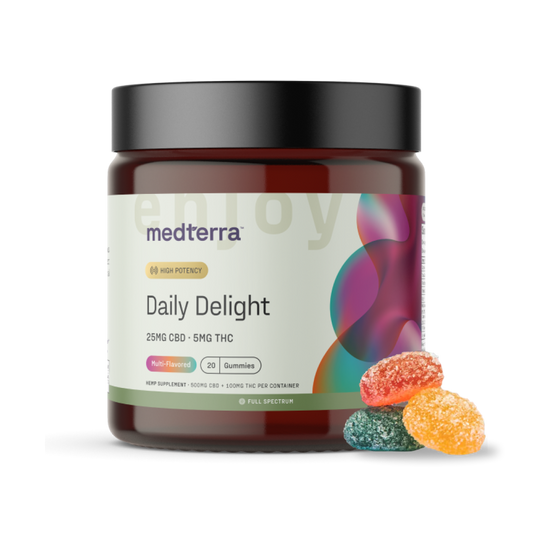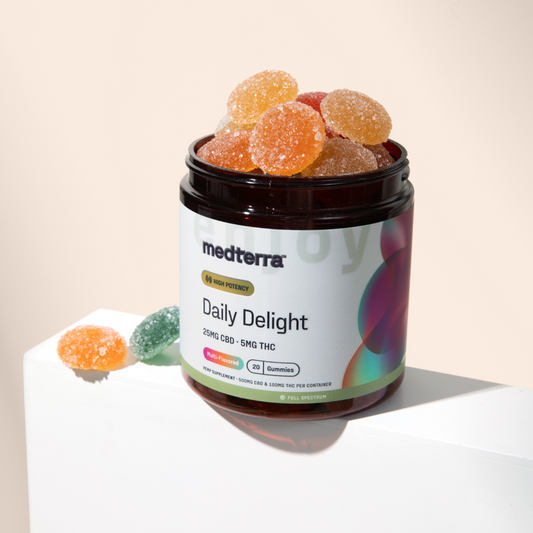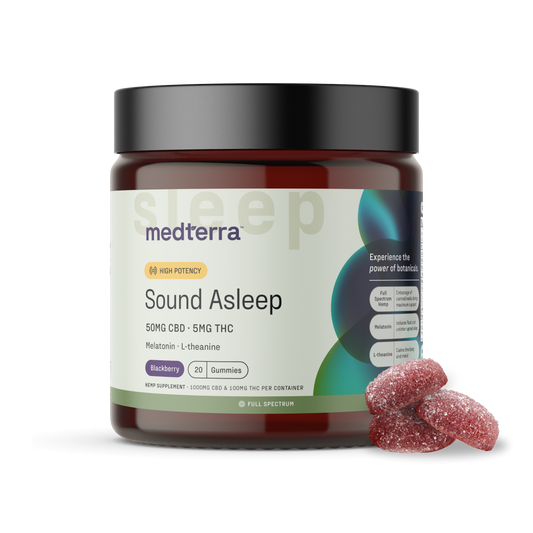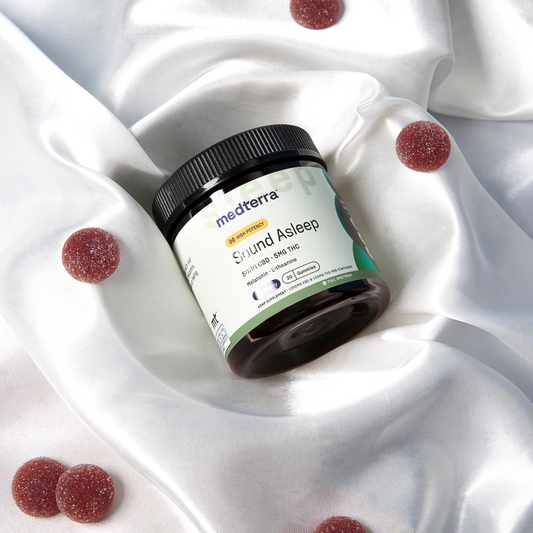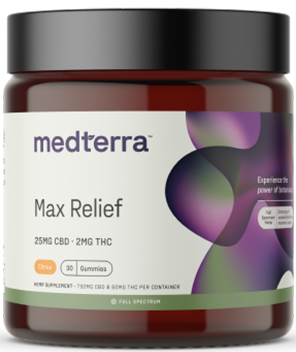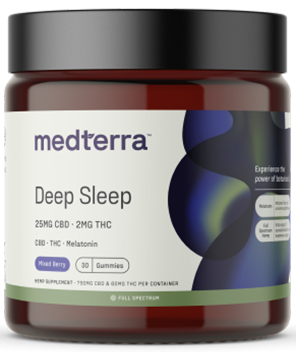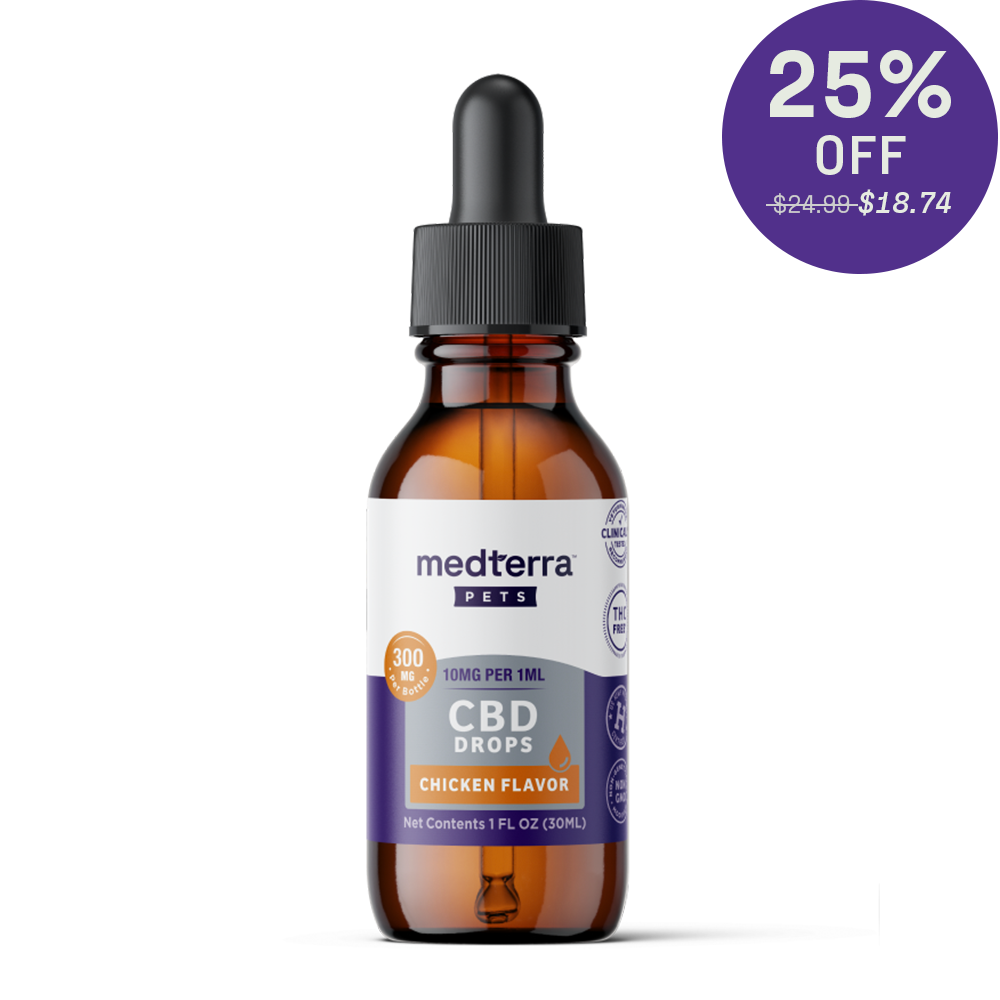CBD and THC may coexist within the same hemp plant, but they have plenty of differences! Whether we’re talking about their chemistry, history, or effects, CBD and THC are just different. Keep reading to learn more.
- CBD vs. THC 101
- CBD vs. THC: shared history, shared effects
- CBD vs. THC: where they come from
- CBD vs. THC: top differences
- CBD vs. THC: top similarities
- Hemp vs. cannabis vs. marijuana
CBD vs. THC 101
It’s necessary to understand what CBD and THC are before we understand how they’re different, so let’s start off with the basics. What are CBD and THC?
CBD stands for:
- Canna
- Bi
- Diol
…and gives hemp its relaxing, reinvigorating power. CBD binds to molecular targets all throughout your body, but it isn’t especially active within your brain. That means it causes relaxation without any wonky mental effects.
THC stands for:
- Tetra
- Hydro
- Cannabinol
…and gives cannabis its famous (infamous?) high. THC binds to molecular targets located in areas of the brain responsible for eating, feeling, and forgetting. That means it causes relaxation and psychotropic mental effects.
CBD is:
- Subtle
- Indirect
- Anti-stress
- Pro-fat metabolism
CBD works by activating:
- CB2 receptors
- Serotonin receptors
- GPCR 55
- TRPV1
THC is:
- Powerful
- Immediate
- Anti-stress
- Pro-sugar metabolism
THC works by activating:
- CB1 receptors
- Oxytocin receptors
- Serotonin receptors
- TRPV1
CBD vs. THC: shared history, shared effects
How’d we discover all this? Good question. Scientists have been studying CBD and THC for over 80 years now.
It all began in the 40s — that’s when many cannabinoids were discovered for the first time. [1] Interestingly enough, it was discovered that both CBD and THC share the same molecular structure. Both of them are abbreviated as C21H30O2: 21 atoms of carb, 30 atoms of hydrogen, and two atoms of oxygen.
The major difference between CBD and THC lies in their structure (CBD contains a carboxyl group that THC doesn’t). In simpler terms, CBD’s shape means it can’t fit itself into the brain the same way THC does. [2]
CBD vs. THC: where they come from
Earlier we mentioned that CBD and THC both come from hemp. While that’s true, hemp contains much more CBD than THC. Most of the THC on the market today comes from elsewhere! Here’s a closer look.
CBD typically comes from industrial hemp. (Our CBD sure does!) What’s industrial hemp, you may ask? It’s really just cannabis that contains less than 0.3% THC by dry weight. [3] Industrial hemp can’t get you high, but it can supply your body with all the cannabinoids and terpenes you need to thrive.
While CBD comes from low-THC cannabis, THC comes from high-THC cannabis. This type of cannabis is often called ‘marijuana.’ High-THC cannabis is usually slightly higher in cannabinoids and terpenes than hemp, though this is changing as hemp cultivators continue to refine their methods.
CBD vs. THC: top differences
CBD and THC have other differences, too. Most of these differences have to do with the mind.
CBD isn’t euphoric in the same way that THC is. It doesn’t cause a mental high. It can, however, be quite uplifting. Studies show that CBD can upregulate your body’s ability to produce its own cannabinoids, causing a mental boost similar to runner’s high. CBD may also improve the body’s metabolic efficiency, helping you burn fat for fuel.
CBD can even affect the way other cannabinoids work. Consuming CBD at the same time as THC, for example, can actually dampen THC’s psychotropic effects. [4]
THC is powerfully euphoric. The moment it’s ingested, inhaled, or otherwise consumed it gets absorbed into the bloodstream, passes through the blood-brain barrier, and begins activating specialized receptors within your brain. These CB1 receptors affect memory formation, creativity, and social openness. THC may also improve your body’s metabolic health by protecting cells from the adverse effects of burning sugar for fuel.
Taken in the right dosage, THC can be hugely therapeutic for people who need to forget their past and forge a better future.
CBD vs. THC: top similarities
Okay, enough talking about differences. Let’s turn our attention to CBD and THC’s top similarities!
Both compounds may:
- Reduce stress
- Improve sleep
- Improve inner balance
- Improve stress tolerance
- Nourish your body’s endocannabinoid system
Hemp vs. cannabis vs. marijuana
It’s also important to know the differences between CBD and THC’s respective sources. Hemp is a common term — and legal designation — for low THC, high CBD cannabis.
Technically any cannabis plant with less than 0.3% THC by dry weight is hemp. (Hemp’s CBD concentration, on the other hand, can reach 20%.) Hemp’s CBD component means it confers health benefits without any mental high.
2018’s Federal Farm Bill defined hemp as a cannabis chemotype with 0.3% THC or less. Cannabis plants that meet this classification are fully legal...in all 50 states! While the 0.3% percentage value may be a little arbitrary, it’s made today’s CBD boom possible.
The moment hemp contains more than 0.3% THC, it becomes classifiable as ‘marijuana,’ or high-THC cannabis. (This type of cannabis’ THC concentration can reach 30%!) Marijuana’s THC component means it quickly and easily gets those who partake high.
As of 2023, the federal government still considers ‘marijuana’ a schedule 1 drug. That means it’s completely illegal on the federal level. Marijuana-derived THC remains highly illegal, too. If you’re interested in trying delta-9 THC or other THC compounds, you’ll need to get them from hemp for now!
CBD vs. THC: summing things up
CBD and THC vary wildly in terms of their mental effects, but they share something even more important: the ability to improve inner balance and reduce stress. At Medterra we believe that hemp is nature’s ultimate answer to the CBD vs. THC question.
Why? Because it contains a perfect blend of both compounds — and over 100 others. Discover what hemp-derived CBD and THC are all about today.



